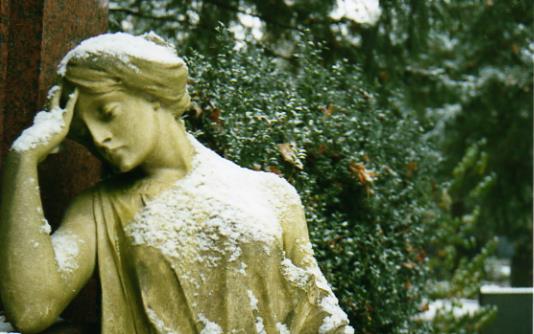No man is an island,
Entire of itself.
Each is a piece of the continent,
A part of the main.
If a clod be washed away by the sea,
Europe is the less.
As well as if a promontory were.
As well as if a manor of thine own
Or of thine friend’s were.
Each man’s death diminishes me,
For I am involved in mankind.
Therefore, send not to know
For whom the bell tolls,
It tolls for thee.
John Donne 1572-1631
The above poem is known by two titles. You can choose between ‘No Man Is an Island’ or ‘For Whom the Bell Tolls’. The former title lacks the ominous resonance of the latter but it is perhaps more apt when you surmise Donne’s main point which is that all humanity is interconnected and the death of any person should prompt a reckoning of one’s own mortality and spur the flanks of one’s faith. Donne was a man of faith. I allegedly studied him when I was an English Literature undergraduate. I remember being one of several hundred snickering listeners when the somewhat sleazy acting head of the department offered his moist, elbow-nudging rendering of Donne’s ‘The Flea’ (check out this graphic interpretation of the sexy classic).
Terrible student that I was, I paid little attention to the poet or his poetry, being more interested in taking potshots at easy targets like badly-dressed, moustachioed academics. So when I was wondering ‘for whom the bell tolled (sic)’ I was very surprised to see the quote attributed to Donne. Ernest Hemingway took the quote for the title of one of his most famous novels. Set during the Spanish Civil War the title referred to the fatalistic ideologies of Hemingway’s central characters, combatants fighting for the Republican guerrillas. For them, death was an inevitability, both unavoidable and necessary, especially in pursuit of a greater cause. That cause was political freedom and democratic rule. For Donne, it was the ascent to heaven and closeness to God.
Referring to the text as a poem is a bit of a misnomer as it is actually an extract from a prose contemplation that Donne wrote after surviving a near fatal illness. It was one of a number of theological reflections and it carries the rather sober title of ‘Meditation 17, from Devotions Upon Emergent Occasions’. I am not really sure what was meant by an ’emergent occasion’ but I presume it referred to something of significance. An occasion of moment. Perhaps Donne was speaking literally of his emergence from sickness. Or maybe it was more philosophical, more existential. Perhaps when a friend contacted him to discuss the metaphorical potential of parasites he simply said ‘sorry, something’s come up’, a handy buffer that is equally popular today. Although doubtless his vernacular would have been less 20th century and more along the lines of ‘our confabulation must wait, an emergent occasion has arisen – namely, my mortality!’.
Little Johnny Donne, sitting up in his bed, asking what it’s all about. He wasn’t the first and he won’t be the last. He framed his mortality in a universal context with that beautiful line ‘For I am involved in mankind.’ It’s such a potent understatement. ‘For I am involved in mankind.’ Are not we all? That would be another good excuse – ‘sorry I can’t make it today, I’ve gotten myself involved in something.’
‘What?’
‘Mankind’.
‘Okaaaay…’
A few different friends of mine have suffered the loss of parents over the last year and a bit. Two of them have been orphaned, so to speak, and they have been in my thoughts often as I have contemplated their loss, my own mortality and that of my parents and other family and friends. As adults, what role is fulfilled by our parents? Do we still crave their approval? Do we seek their counsel? Do we fear their scorn? Do we take shelter under their protection? Do we live with their judgement, even after they have gone? And that’s not to speak of love, respect, honour and obedience. Where are we in the world without them? And indeed, if the bell tolls for them does the spectre of our own end not suddenly become that much closer, that much more real? I suppose it depends very much on the individual’s relationship with death. Contrary to the impression I am giving here, I don’t give the end of life a huge amount of thought. I am always much more interested in what can be done in the here and now.
What can be thought? What can be felt? What can be learned? What can be expressed? And to whom? And in what place? And in what time? And to whom will you be answerable? In the absence of parents or a higher power, before whom will you be judged? Is it not a moral compunction to become your own parent, your own guide, your own judge? Surely there is a moment in our lives when we absolve anybody else of that duty of care. When we stand alone and say ‘I know where I came from. I know where I am. I know how I am going to proceed.’ And it is said without a look over the shoulder. It is said without a look to the stands. It is said without the expectation of affirmation. It is about ownership. You take possession of your life because doing anything less is a diminishment. A lessening. An abdication of self.
‘Send not to know for whom the bell tolls, it tolls for thee.’
The bell is not to be feared. It is an acknowledgement of our commonality, our shared experience. It is a chime that resonates with meaning. It allows us to express our love and our sadness, our anger and our regret. It offers us an opportunity to heal and to start a new day afresh. For Donne it was a healthy reminder that God was waiting for him and a faith-filled life would ensure his eternal reward. Paradise. Eden. The unspoilt garden. Or to use his own metaphor, the ultimate translation of the tome of which all mankind is a part.
There is a relatable concept from karate called zanshin. When you finish a technique in karate you maintain a feeling of heightened awareness immediately afterwards to be fully sure no further action is required; if it is, you are one hundred percent ready. A sensei of mine used to liken this to a bell being struck. He described how a bell would continue to vibrate after it had rung out. The sound and the vibration resonated with life, with purpose, with memory. Our karate techniques should do this also. Some martial arts translate zanshin as ‘remaining mind’. This captures nicely the heightened mental state to which I referred. My sensei translated it as ‘perfect finish’. I feel that chimes better with the themes I have raised in this post.
‘Perfect finish’ suggests to me an ending with which you cannot be anything other than satisfied. Any form of perfection can only be aspirational and I feel that is apt when touching on bereavement, grief, and moving on. Whether a parent or a child, or indeed both, letting go is an imperative part of personal growth. Being a part of something is irrefutably life-affirming but we should have no fear of being apart.
Stand alone. Mind yourself. And get involved.




Great post Dara. Deep thoughts to ponder on this wild Monday evening 🙂
Thanks Brenda, I hope the post wasn’t too in synch with the meteorological turmoil outside!